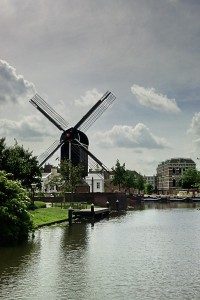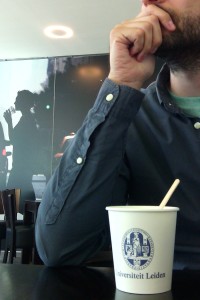My name is Francesc Esteve, I am from Spain (SP), and I have just presented my doctoral dissertation at the Rovira i Virgili University. During the last semester I did a research stay at the ICLON Graduate School of Leiden, and I like to explain my international experience in this post.
I started my PhD four years ago. After finishing the theoretical framework and data collection, I thought it might be a good idea to stay a while at another European university, to share and compare my results, draw future lines of work and finish writing my work.
I’ve tried to summarize this experience in 5 points detailed below, five things to highlight, that I’ve learned or that’ve surprised me.
1. Research & Papers.
Working on a paper was one of the main objectives of my stay. I wanted to see the day-to-day work in an important academic institution, in which its researchers and PhD students usually publish in International Journals with impact factor.
This is the way of working in medical or scientific-technological areas in SP, but it is unusual in social sciences, and especially in education, where the tradition and culture is quite different. Although the reality is changing, we continue writing traditional theses of about 500 unpublished pages, or focusing on our national journals. There are different reasons for this situation, such as some reticence with the journals model, but it is also true that sometimes we use it as excuses to not beat the inertia or laziness.
2. Work environment.
The work environment was another surprising thing. In Spanish universities all people have to do everything (teaching, research and management tasks), while in the Netherlands (NL) there are different profiles, more (or exclusively) focused on teaching or research. They also have a significant number of PhD students working full time. In my home university there are many PhD students but most of them are part-time, who are primary or secondary school teachers and combine their work with their thesis, but very few of them have a predoctoral fellowship to work at it.
This different situation (organizational and resource) creates a good environment to research. While in SP we mix issues of teaching, research and management in our “research meetings” we spent a lot of time talking about organizational aspects. However, in NL, the research meetings in which I participated were very intense, centred on the academic discussion and knowledge creation.
3. Language (English & Dutch).
I already knew this issue, but nevertheless it was still surprising to me. I mean the English level. Although the official language is Dutch, and I was lucky to learn some expressions in Dutch, everyone speaks English. Everyone.
My English was (and is) rather poor, but unfortunately I am not the only one in SP, it is an endemic problem. Neither our politicians, nor business people nor faculty members mostly have a good level of English. There are many influencing factors (size of the Spanish language, history, etc.) and little by little we are changing our reality, but much remains.
4. Way of being.
Of course, there is no single way of being, and generalize leads to mistakes, but after this experience I can highlight some features that I liked.
On one hand, I like the professionalism of the people, fulfilling the agreed commitments and meeting schedules, which sometimes we tend to interpret in a “relaxed” manner in southern Europe. Another aspect is that people are very direct. While other cultures give many turns to things, with ornate politically correct turns, in NL they go to the point. I still remember some of these direct (and difficult) questions during meals. Third, these two previous traits are complemented by a good sense of humour, both at work, leisure and party. This is more like us 😀
5. Way of life.
Finally, I have no doubts that emphasize the lifestyle in the NL. Okay, It’s true… the weather is not always good. It rains often, there are windy days, storms, and winter is cold… but the Netherlands is amazing: green parks, flowers, canals, bikes, markets, cheese, and Dutch Snacks! It was great to finish writing my dissertation taking a koffie verkeerd or walking by the canals.
Dankjewel en zie je snel!







As an international researcher, this is nice, very objective and quite realistic interpretation of your academic experience in ICLON, Leiden University. I am totally agree with all 5 highlighted issues, but I guess and believe there are more lot to add this list !
I envy your experience in staying in another university but at the same time, I am happy for you. This is one of the things I plan to do. Like you, I know that I would also learn a lot from this experience that would make me a better student. I am also interested to interact with different students. I hope I can do this soon.